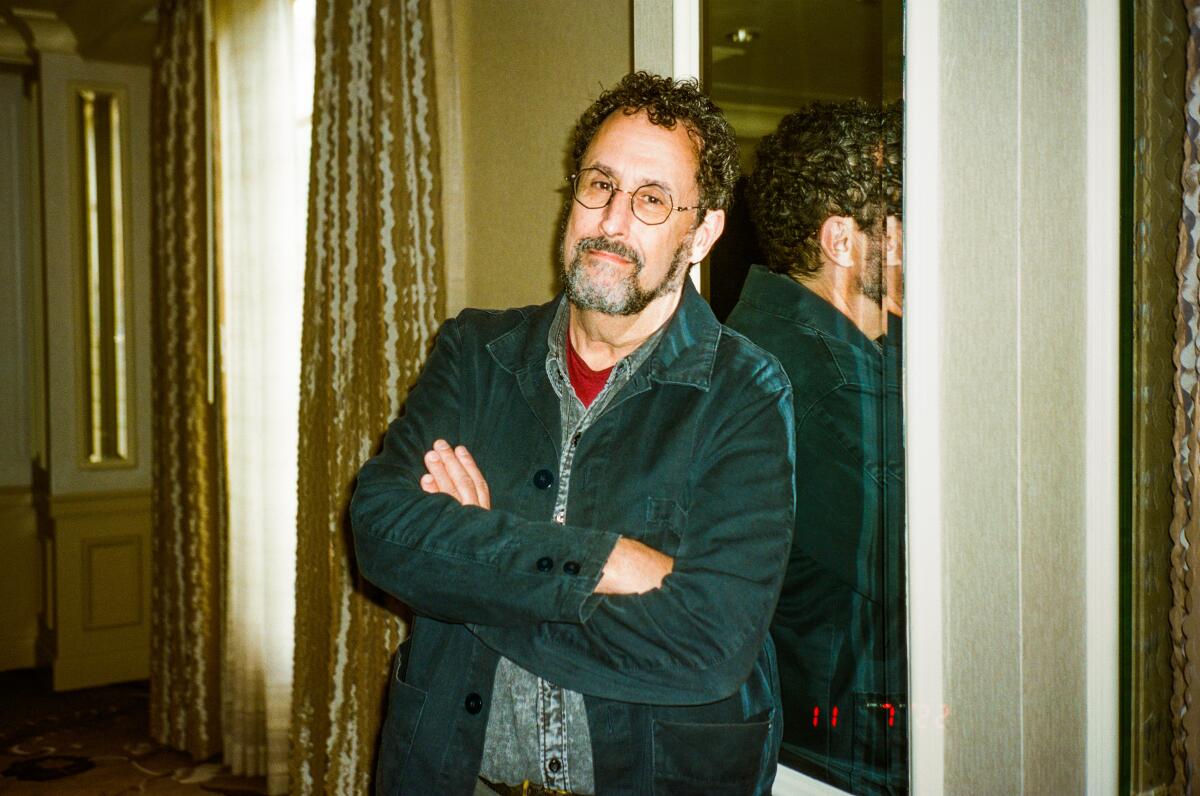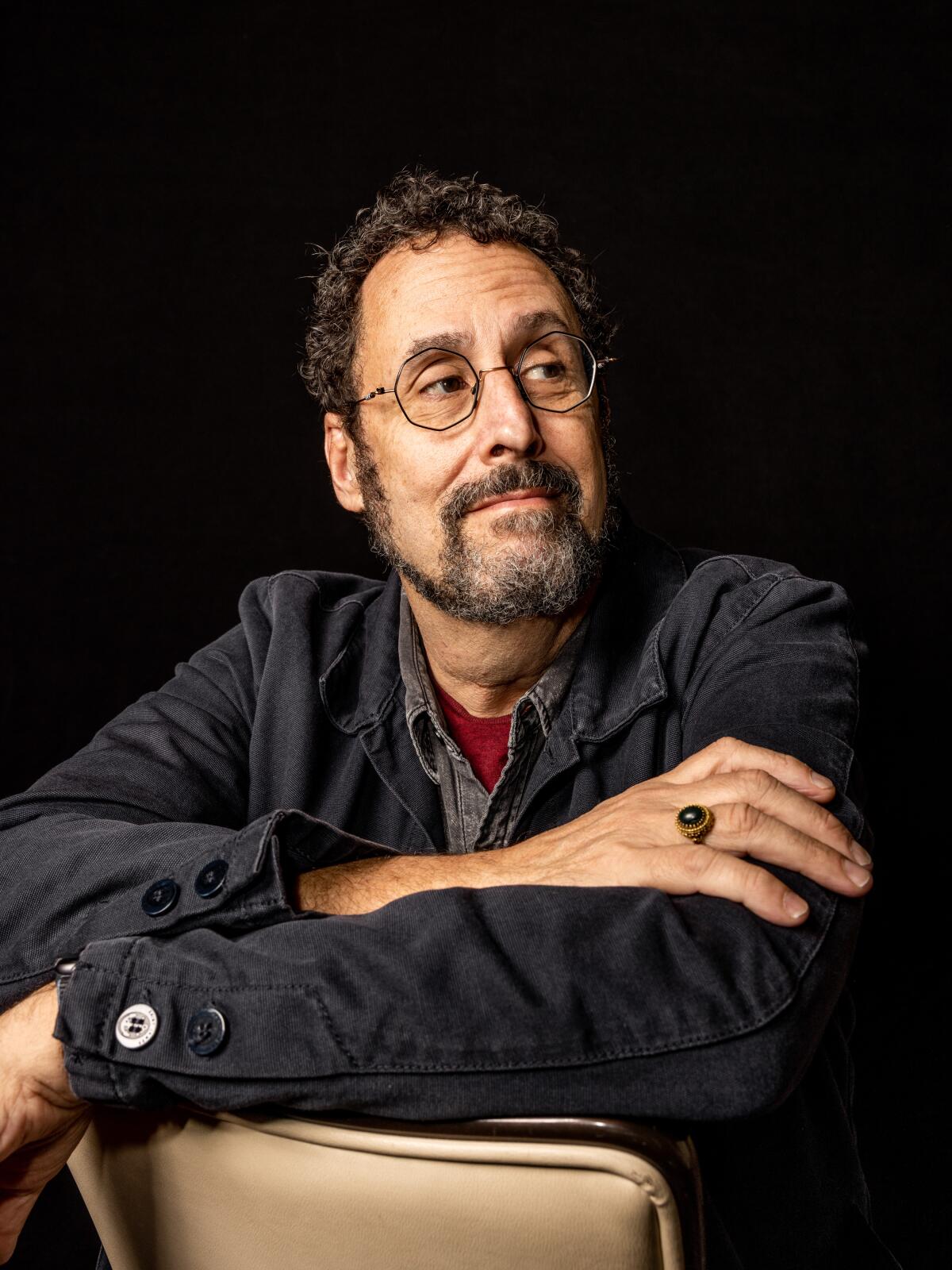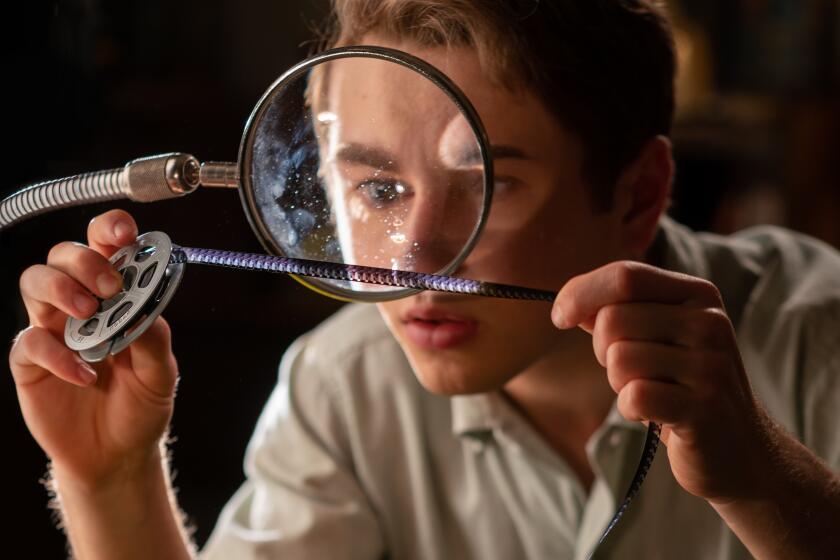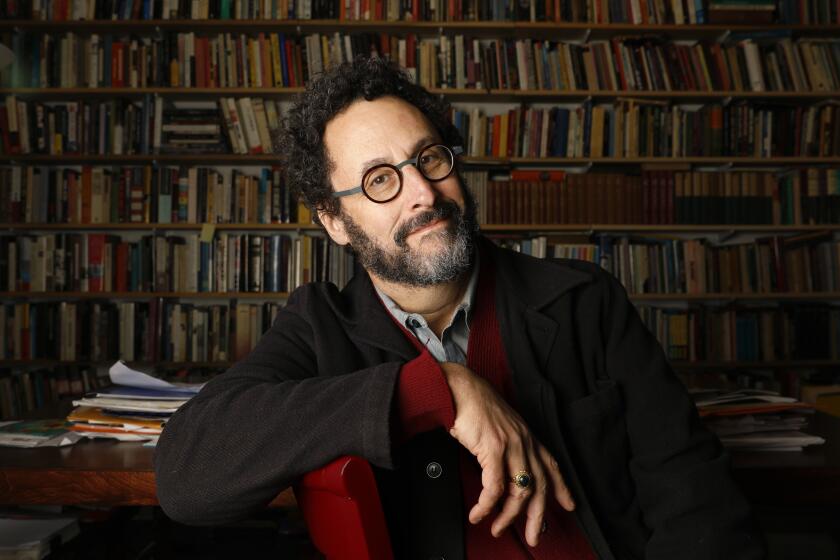How after 20 years of talking, Tony Kushner got Steven Spielberg to open up

- Share via
On the very first night of filming their earliest collaboration — 2005’s “Munich” — Tony Kushner asked Steven Spielberg when he’d gotten his start. Spielberg recounted the tale now at the heart of “The Fabelmans,” his most recent — and certainly most personal — work: the teen’s filming of a family camping trip and the discovery he made while subsequently reviewing the footage.
“I said, ‘Wow, that is an unbelievable story,’” Kushner says via phone the day after the film’s Los Angeles premiere at AFI, adding that he then told the director he’d one day have to make a movie about it. “He said, ‘Oh, I don’t know if I’d ever want to do anything like that.’ And I said, ‘Well, I don’t see how you cannot, because there’s so much in that story.’”
It took nearly 20 years, two more joint efforts (2012’s “Lincoln” and 2021’s “West Side Story”), many casual mentions, plus a few more serious sessions during which Spielberg reminisced and Kushner took notes — not to mention the deaths of Spielberg’s parents — before the pair finally committed to sitting down and turning their “decent outline” into the script of “The Fabelmans.”
Here’s a snapshot of the best picture race as we head into the holidays.
For the first time, Spielberg and Kushner would share writing credit, working on collaboration software via Zoom (with Kushner doing most of the typing) for two months — three times a week, four hours per sitting.
Kushner had never written with anyone before, and he notes their first draft is the fastest he’s ever completed anything. “I mean, we did a lot of revision after that, but we felt like we really had something,” he says. “And I, at least, was really surprised at how much fun I’d had doing it. I find writing very hard, and part of what’s hard is the loneliness of it. Being alone with yourself in a room. I found it a great joy to be working with somebody.”
Kushner has long had great respect for his director as a writer. “‘Close Encounters’ is one of my favorite movies of all time,” he says, “and he wrote that. I don’t think anybody else could have written it. Steven has an incredible ear for language, for the music of it, for its subtleties.”
“I felt I had permission to dig into every corner of ‘West Side Story,’” writer Kushner says of talking with Stephen Sondheim before putting his mark on the remake.
Kushner then divulges something new. “There’s one line — I won’t say what it is — but it may be my favorite line in the whole movie. He spit it out, and it’s a strange line, and I said, ‘That’s incredible,’ and I immediately put it in. He was pleased because I was so excited about it. Then, a day later, he said, ‘I think we get rid of it. I don’t know what that means.’ I said, ‘I don’t know either, but we’re not touching it. We’re leaving it.’ Then he tried to rewrite it and I said, ‘No, leave it alone.’ All the way up til almost the day we filmed it, he kept saying, ‘I don’t think this is … I don’t get … Why would …?’ It wasn’t until the day we were filming the scene that I suddenly realized why that line was so perfect — even in its strangeness. I’m really proud I kept it in. If I hadn’t been there, it would not have made it into the movie.”

The squabble surrounding that one line was not, however, the extent of the two creators’ friction. “Steven Soderbergh once said directing a movie is making art on the wing of a 747 in flight, and it’s really true,” says Kushner. “When we’re working together, I’m on the set the whole time [Spielberg] is filming. He’s insisted on that since ‘Munich,’ and I love that experience. But there’s unbelievable time pressure. The frustration is, it’s almost impossible to find moments where you can really stop things and think. That’s the great joy of working on a script before you go into production. That we could talk through things is maybe one reason why our work together on this set was to a degree less conflicted than it has been on others.
“I think our conflicts usually produce something good, which is why we both want to keep working together and why he puts up with me. But with ‘The Fabelmans,’ it was a little bit — I mean, I still threw fits in video village and would write him long texts from time to time — but I felt like we were, in a certain sense, on the same page more often because we’d written the page.”
After nearly two decades in cinema, how does the Tony and Emmy winner (for Broadway’s “Angels in America” and HBO’s filmed version, respectively) label his professional identity? “In my heart of heart of heart of hearts, I am and always will be a playwright,” says Kushner. “But after four movies with Steven, I feel like I can say without any embarrassment that I’m a screenwriter.”
He then stresses he does not use the word lightly, but “Steven Spielberg is an artist of genius, and it’s a great joy to me that I get to be part of the creation of his films. … I assume when I croak, the movies I’ve made with him will be considered a big part of what I managed to do, and I’m really happy about that.”
More to Read
From the Oscars to the Emmys.
Get the Envelope newsletter for exclusive awards season coverage, behind-the-scenes stories from the Envelope podcast and columnist Glenn Whipp’s must-read analysis.
You may occasionally receive promotional content from the Los Angeles Times.












